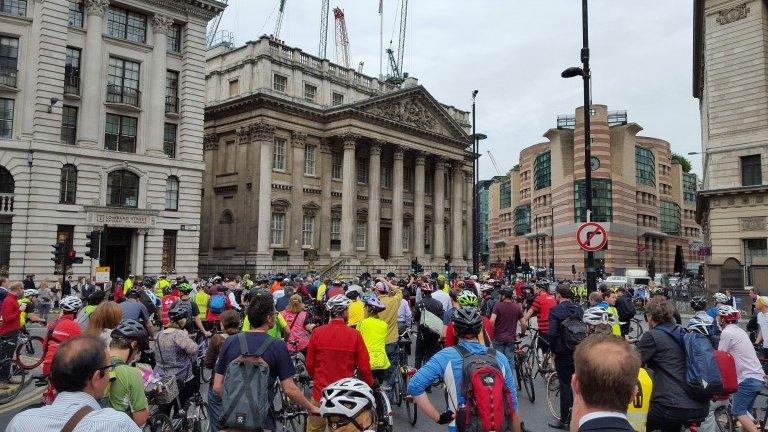Council backs reopening of Bank junction to taxis
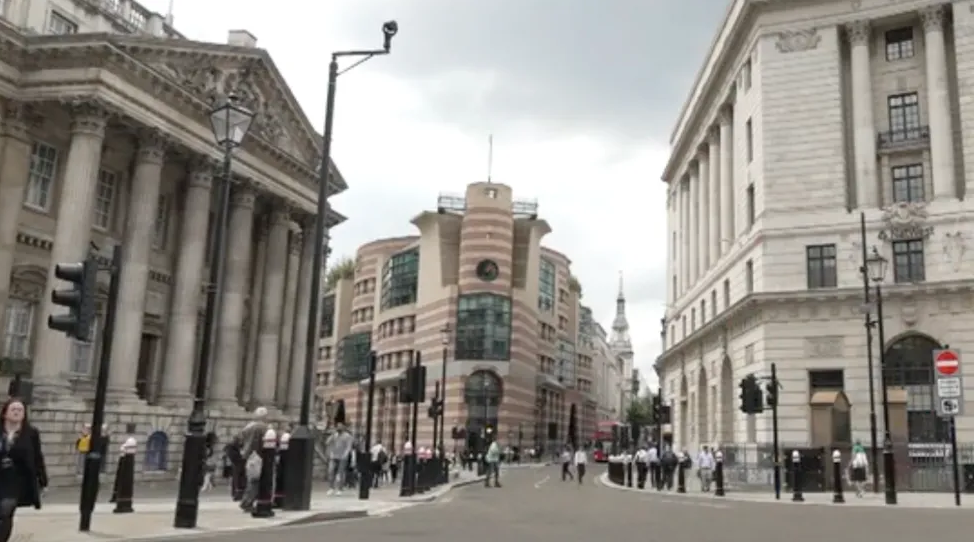
Bank junction is currently only open to pedestrians, buses and cyclists on weekdays
- Published
Taxis could be allowed access to Bank junction in the City of London for the first time in seven years, after councillors voted to remove the current restrictions.
The rules only allowing access to buses, cyclists and pedestrians during weekdays were introduced to the area in 2017 following the death of a cyclist.
However, disability campaigners argued that parts of the public transport network were "inaccessible" to some, with taxis being "vital".
The Corporation said a trial to allow taxis may begin in Spring 2025, but approval from Transport for London was required first.
Currently, only buses and pedal cyclists are allowed to cross Bank junction or travel westbound on Cornhill between 0700-1900, from Monday to Friday.
Restrictions were first put in place in 2017, after 26-year old cyclist Ying Tao was killed when she was hit by a lorry turning at the junction in 2015.
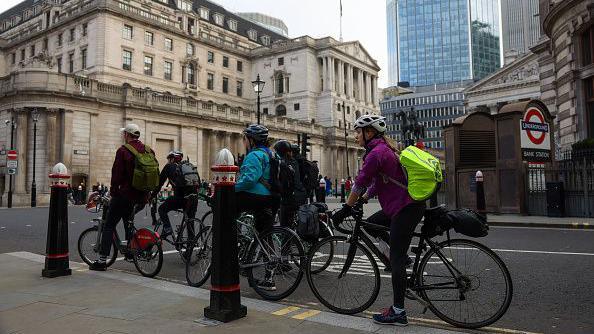
London Cycling Campaign says the decision will lead to "increased road danger for those walking and cycling"
A recent review of the junction, external stated that the restrictions had reduced causalities to "virtually nil", with only one collision in the 11 months up to November 2023.
But following a debate at the the City of London Common Council, 57% voted in favour of reopening the junction to taxis, with only 21% backing a plan keep the current restrictions.
Chairman of the City of London Corporation’s Planning and Transportation Committee, Shravan Joshi, said: “The overall work programme at Bank Junction has meant that the junction is already a safer, more pleasant environment to travel through and we will carefully monitor the impact of re-introducing taxis into this vibrant area.
“For those unable to use modes of active travel, or who need transportation when public services aren’t available, black cabs have the potential to enhance this public space."

Ying Tao was killed when she was hit by a lorry turning at Bank junction
Reacting to the news, Paul Brennan, chairman of the Licensed Taxi Drivers’ Association, said "common sense has prevailed" and the move was "an important step towards ensuring the City of London is open and accessible".
“We are confident once in place, this trial will demonstrate the importance of taxi access and benefit the immediate area and wider Square Mile," he said.
Rensa Gaunt from disability charity Inclusion London said taxis were "a vital part of public transport for many disabled people".
"We all want to able to travel independently, safely and with confidence, but parts of public transport like buses or the Underground remain inaccessible to many of us," she said.
"Being able to travel by taxi via the Bank junction will mean more of us can reach our end destination directly and safely."
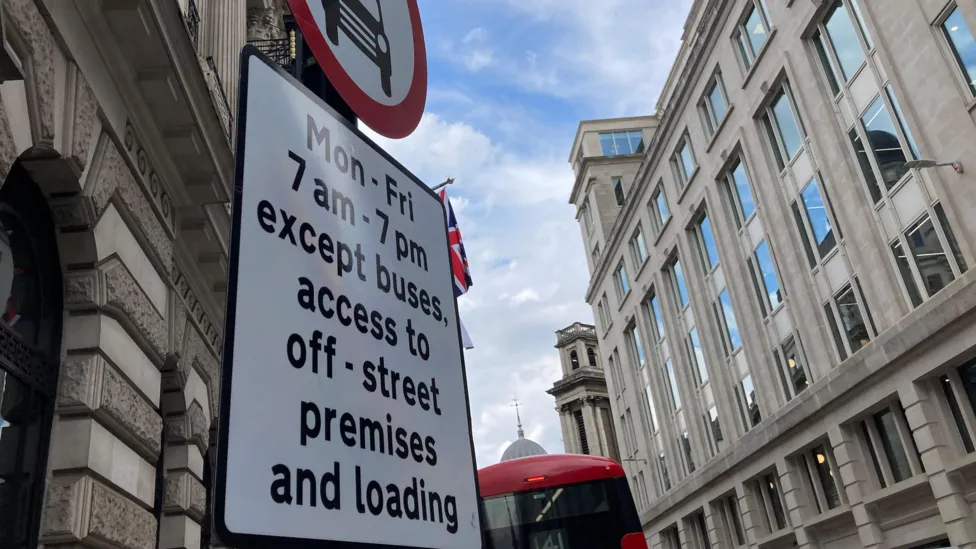
Restrictions were introduced in 2017, but may now be changed on a trial basis to allow access to taxis
Nevertheless, Simon Munk from the London Cycling Campaign said he was "incredibly disappointed in the decision".
"The likelihood is that if this trial does go ahead in 2025, there'll be increased road danger for those walking and cycling, delays to buses, and we'll see fewer people ambling, sitting, snacking at Bank and a wall of cabs instead.
"This goes against the City's own transport strategy and City Plan 2040," he said.
Listen to the best of BBC Radio London on Sounds and follow BBC London on Facebook, external, X, external and Instagram, external. Send your story ideas to hello.bbclondon@bbc.co.uk, external
- Published20 May 2017
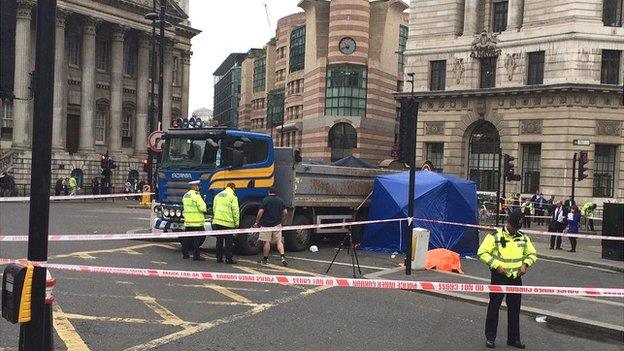
- Published20 June 2024
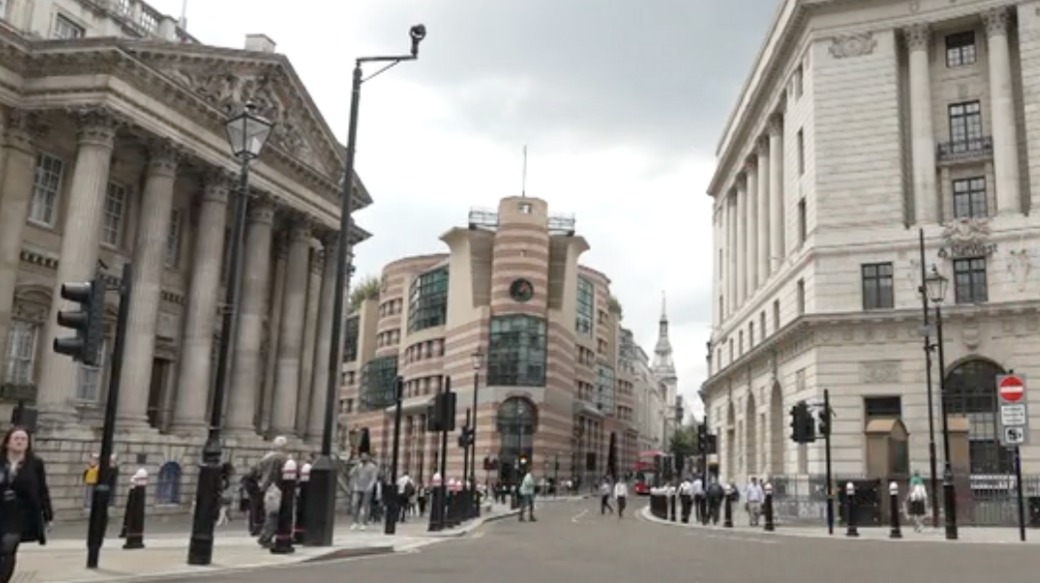
- Published24 June 2015
